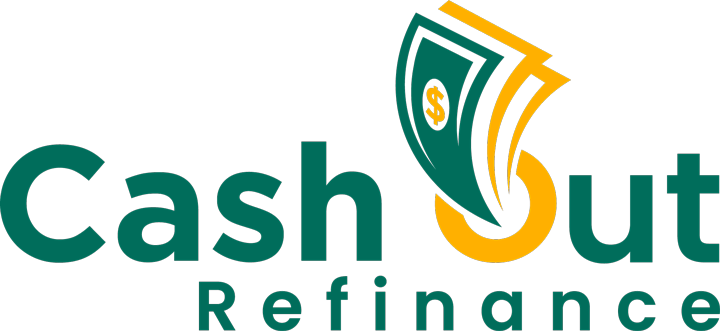Unlocking Equity for Real Estate Growth for Your Investment Cash-Out Refinance
An investment cash-out refinance is a powerful financial strategy that allows real estate investors to access equity from their rental properties. Whether you want to expand your portfolio, renovate properties, consolidate debt, or improve cash flow, this refinancing option can help you leverage your existing investments for further financial growth.
In this comprehensive guide, we will explore:
✅ What is an Investment Cash-Out Refinance?
✅ Eligibility & Loan Requirements
✅ How Much Equity Can You Access?
✅ Best Loan Options for Investment Property Refinancing
✅ Benefits & Risks of a Cash-Out Refinance on an Investment Property
✅ Best Uses for Cash-Out Funds
✅ Step-by-Step Process to Apply
✅ FAQs & Real-Life Examples
What is an Investment Cash-Out Refinance?
An investment cash-out refinance is a mortgage refinancing option that allows investors to replace an existing loan with a new one for a higher amount while withdrawing the difference in cash. This financing method helps real estate investors liquidate home equity without selling the property.
💡 Example:
- Current Mortgage Balance: $200,000
- Property Value: $500,000
- New Loan Amount (75% LTV): $375,000
- Cash Received: $175,000 (minus closing costs)
Investors can reinvest this capital into new properties, pay off debts, or renovate their existing portfolio.
Eligibility Requirements for an Investment Cash-Out Refinance
Lenders impose stricter requirements for cash-out refinancing on investment properties compared to primary residences. Here’s what you need to qualify:
✔ Property Type: Must be a non-owner-occupied rental property (single-family, multi-family, condo, or mixed-use).
✔ Loan-to-Value (LTV) Ratio: Typically up to 70-75% of the property’s value.
✔ Credit Score: Minimum 680-700, but 740+ gets the best rates.
✔ Debt-Service Coverage Ratio (DSCR): Lenders may require a DSCR of 1.25+, meaning rental income must be 125% of mortgage payments.
✔ Seasoning Requirement: Must have owned the property for at least 6-12 months before refinancing.
✔ Sufficient Reserves: Some lenders require 6-12 months of mortgage reserves to cover payments.
💡 Key Takeaway: Investors with strong credit, good rental income, and low debt have the best chances of approval.
How Much Equity Can You Access?
The maximum loan-to-value (LTV) ratio determines how much cash you can take out.
| Property Type | Max Loan-to-Value (LTV) Ratio |
|---|---|
| Single-Family Rental | Up to 75% |
| Multi-Family (2-4 Units) | Up to 75% |
| Multi-Family (5+ Units) | Up to 70% |
| Mixed-Use Property | Up to 65-70% |
Example Calculation for an Investment Property:
- Home Value: $600,000
- 75% LTV Limit: $450,000
- Existing Mortgage Balance: $250,000
- Potential Cash-Out Amount: $200,000 (minus closing costs)
💡 Investors with more equity have greater borrowing power.
Loan Options for Investment Property Cash-Out Refinancing
Investors have several loan options depending on their property type and investment strategy.
1. Conventional Loans (Best for 1-4 Unit Properties)
✔ LTV: Up to 75%
✔ Lower interest rates than commercial loans
✔ Fixed & Adjustable Rates Available
✔ Best for: Investors with strong credit and low LTV
2. DSCR Loans (Debt-Service Coverage Ratio Loans)
✔ LTV: Up to 75%
✔ Approval based on rental income, not personal income
✔ No personal tax returns required
✔ Best for: Investors with high rental cash flow
3. Commercial Loans (Best for 5+ Unit Buildings & Mixed-Use Properties)
✔ LTV: Typically 65-70%
✔ Higher loan amounts for large investment properties
✔ Best for: Apartment buildings and commercial real estate investors
💡 Loan choice depends on whether the property is a single-family rental, multi-family unit, or commercial asset.
Benefits of an Investment Cash-Out Refinance
✔ Leverage Property Equity: Access capital without selling your assets.
✔ Expand Your Portfolio: Use cash to acquire additional rental properties.
✔ Finance Renovations: Improve property value and increase rental income.
✔ Lower Mortgage Rates: Refinancing at a lower rate can reduce loan costs.
✔ Debt Consolidation: Pay off high-interest business or personal loans.
✔ Improve Cash Flow: Reduce debt payments and increase net rental income.
💡 Refinancing is a great way to optimize financial returns on rental properties.
Risks of an Investment Cash-Out Refinance
❌ Higher Monthly Payments: Increased loan balance means larger payments.
❌ Stricter Loan Terms: Lenders apply more rigorous criteria to investment properties.
❌ Closing Costs: Expect to pay 2-6% of the loan amount in fees.
❌ Vacancy Risks: If tenants move out, your rental income may decrease.
💡 Plan for potential rental income fluctuations before taking on additional debt.
How to Use Funds from an Investment Cash-Out Refinance
🏡 Property Renovations – Upgrade units to boost rental income and property value.
📈 Real Estate Investments – Purchase additional rental properties.
💳 Debt Consolidation – Pay off high-interest business or personal loans.
💰 Business Expansion – Fund new real estate ventures or increase working capital.
🔧 Emergency Fund – Set aside cash for unexpected maintenance or vacancies.
💡 Reinvesting funds in real estate can compound your returns over time.
Steps to Apply for an Investment Property Cash-Out Refinance
Step 1: Determine Your Equity & Loan Needs
✔ Assess property value and current mortgage balance.
✔ Calculate potential LTV and cash-out amount.
Step 2: Check Loan Requirements
✔ Ensure credit score meets lender guidelines.
✔ Verify rental income and DSCR qualifications.
Step 3: Compare Lenders & Loan Programs
✔ Research banks, credit unions, and alternative lenders.
✔ Get pre-approved for estimated loan terms.
Step 4: Submit a Loan Application
✔ Provide income verification, tax returns, and rental property financials.
✔ Await underwriting approval and property appraisal.
Step 5: Close on the Loan & Receive Funds
✔ Pay closing costs and finalize loan paperwork.
✔ Cash-out funds become available for investment.
💡 Choosing a lender familiar with investment properties speeds up approval.
Frequently Asked Questions (FAQs)
Can I cash-out refinance an investment property I just purchased?
✔ Most lenders require 6-12 months of ownership before allowing cash-out refinancing.
Do I need an appraisal for an investment cash-out refinance?
✔ Yes, lenders require a full appraisal to determine the property’s value.
Are interest rates higher for investment property refinances?
✔ Yes, rates are typically higher than primary residences due to increased lending risk.
Final Thoughts: Is an Investment Cash-Out Refinance Right for You?
🏡 An investment property cash-out refinance is an excellent strategy for real estate investors seeking liquidity for growth, renovations, or debt reduction.
💡 Considering an investment refinance? Speak with a lender today to explore your options!


